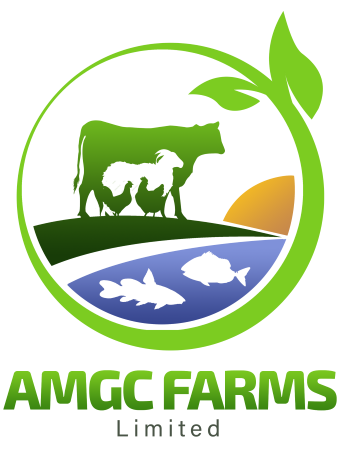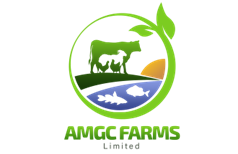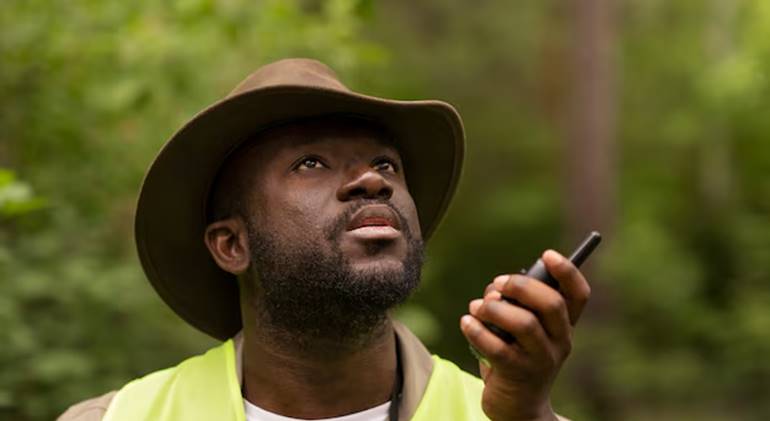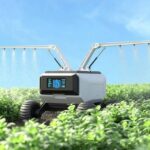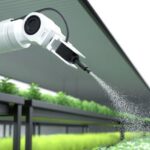Limitations of Smart Farming in Nigeria: A Review Against International Best Practices
Background
Smart farming, also known as precision agriculture, is revolutionizing global food production by integrating AI, IoT, drones, and big data analytics into agricultural systems. While developed nations like the United States, Netherlands, and China have successfully adopted precision farming, Nigeria and other developing countries still struggle with several barriers to full implementation.
This article critically examines the limitations of smart farming in Nigeria, compares them to global best practices, and provides recommendations for improving Nigeria’s agricultural digital transformation.
1. Key Limitations of Smart Farming in Nigeria
1.1 Lack of Digital Infrastructure & Connectivity
🔹 Unlike the Netherlands or China, where farms are equipped with 5G networks and real-time cloud monitoring, most rural areas in Nigeria lack stable internet access (Adewusi & Chiekezie, 2022).
🔹 Many IoT-powered smart farm devices rely on strong internet connections, which remain unavailable in remote areas.
🔹 International Best Practice:
- Countries like Germany and the U.S. use smart farming hubs supported by 5G and cloud computing centers (Fawole & Aderinoye-Abdulwahab, 2021).
- Possible Solution for Nigeria:
✅ Invest in rural broadband projects to expand 5G and satellite internet.
✅ Promote public-private partnerships to extend affordable digital access to farmers.
1.2 High Cost of Technology & Adoption Barriers
🔹 Smart tractors, drones, and AI-powered sensors remain too expensive for smallholder farmers, who make up 70% of Nigeria’s agricultural workforce (Otieno, 2023).
🔹 Lack of financing options prevents farmers from adopting smart technologies.
🔹 International Best Practice:
- In China, the government subsidizes 50% of the cost for smart farming equipment.
- Possible Solution for Nigeria:
✅ Introduce low-interest loans for precision farming tools.
✅ Encourage leasing models for AI-driven tractors and drones.
1.3 Limited Farmer Awareness & Training 🧑🌾
🔹 Many Nigerian farmers lack knowledge about AI-based soil monitoring, smart irrigation, and big data farming analytics (Terdoo & Adekola, 2014).
🔹 International Best Practice:
- The Netherlands and Israel have established digital agriculture training centers to teach farmers how to use IoT sensors, AI dashboards, and automated systems (FAO, 2023).
- Possible Solution for Nigeria:
✅ Establish digital learning hubs in rural communities.
✅ Launch agricultural technology boot camps for farmers.
1.4 Cybersecurity Threats & Data Privacy Issues 🔐
🔹 Smart farms generate massive amounts of data, including weather patterns, soil health, and crop performance.
🔹 Nigeria lacks strong cybersecurity measures to protect farm data from hacking or unauthorized access (Adewusi & Chiekezie, 2022).
🔹 International Best Practice:
- The European Union’s GDPR laws protect agricultural data.
- Possible Solution for Nigeria:
✅ Develop agriculture-specific cybersecurity frameworks.
✅ Train farmers on data privacy measures.
1.5 Energy Supply & Sustainability Concerns ⚡
🔹 Many smart farming devices rely on electricity, but Nigeria faces severe power shortages, with less than 45% of rural farms having consistent electricity (FAO, 2023).
🔹 International Best Practice:
- Countries like India and Kenya promote solar-powered irrigation and AI-based microgrid solutions.
- Possible Solution for Nigeria:
✅ Expand the use of solar-powered irrigation systems.
✅ Encourage investment in renewable energy for agribusinesses.
2. International Best Practices in Smart Farming
2.1 The Netherlands: AI-Powered Greenhouses 🌱
✅ The Netherlands produces 5x more food per acre than the global average using AI-driven precision farming (Partey et al., 2018).
✅ Automated greenhouses optimize irrigation and nutrient supply based on real-time crop data.
2.2 China: Government-Supported Precision Farming 🇨🇳
✅ The Chinese government subsidizes 50% of precision agriculture equipment.
✅ 5G-connected smart farms allow remote monitoring and AI-driven pest control (FAO, 2023).
2.3 Israel: Smart Water Management & Drip Irrigation 💧
✅ Drip irrigation systems, powered by AI and IoT sensors, reduce water usage by 60%.
✅ Precision fertigation techniques ensure plants get the right nutrients at the right time.
3. Recommendations for Improving Smart Farming in Nigeria
🔹 1. Develop Digital Farming Hubs:
- Establish agricultural technology parks in key states like Lagos, Kano, and Benue.
🔹 2. Strengthen Smart Farming Policies:
- Introduce smart agriculture laws to regulate AI, IoT, and big data usage in farming.
🔹 3. Expand AI-Based Crop Monitoring:
- Train agricultural extension officers on AI-powered pest detection and weather forecasting tools.
🔹 4. Promote Low-Cost Smart Farming Models:
- Encourage leasing options for drones, tractors, and IoT sensors to make them affordable for smallholder farmers.
Conclusion: The Future of Smart Farming in Nigeria
While smart farming presents enormous potential for Nigeria, limited internet infrastructure, high costs, and lack of farmer training remain major barriers. By learning from global best practices—such as government incentives in China, AI-powered greenhouses in the Netherlands, and smart irrigation in Israel—Nigeria can build a sustainable, technology-driven agricultural sector.
References
Otieno, M. (2023). An extensive survey of smart agriculture technologies: Current security posture. World Journal of Research. Retrieved from https://www.researchgate.net
Adewusi, A. O., & Chiekezie, N. R. (2022). Securing smart agriculture: Cybersecurity challenges and solutions in IoT-driven farms. World Journal of Agriculture. ResearchGate. Retrieved from https://www.researchgate.net
FAO. (2023). The future of precision farming in Africa. Food and Agriculture Organization of the United Nations. Retrieved from https://www.fao.org
Fawole, B. E., & Aderinoye-Abdulwahab, S. A. (2021). Assessing smart farming adoption in Nigeria: Challenges and opportunities. Springer. Retrieved from https://link.springer.com
